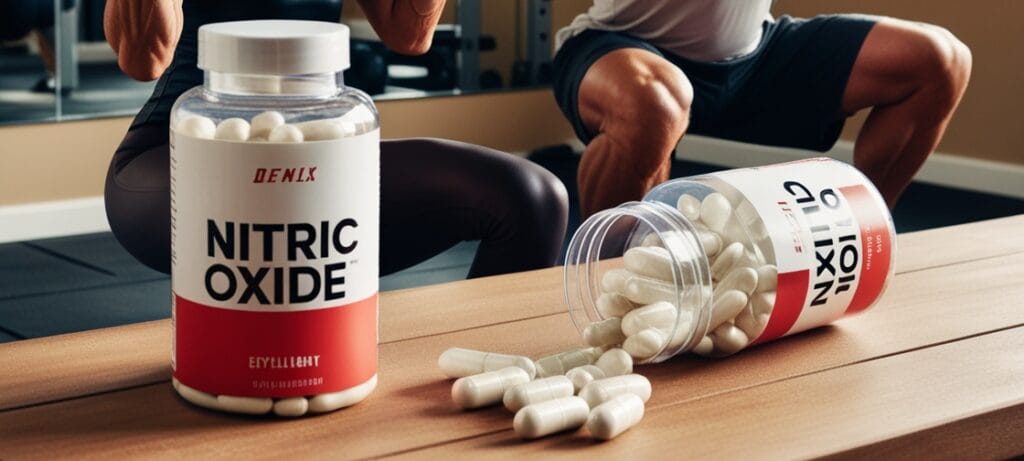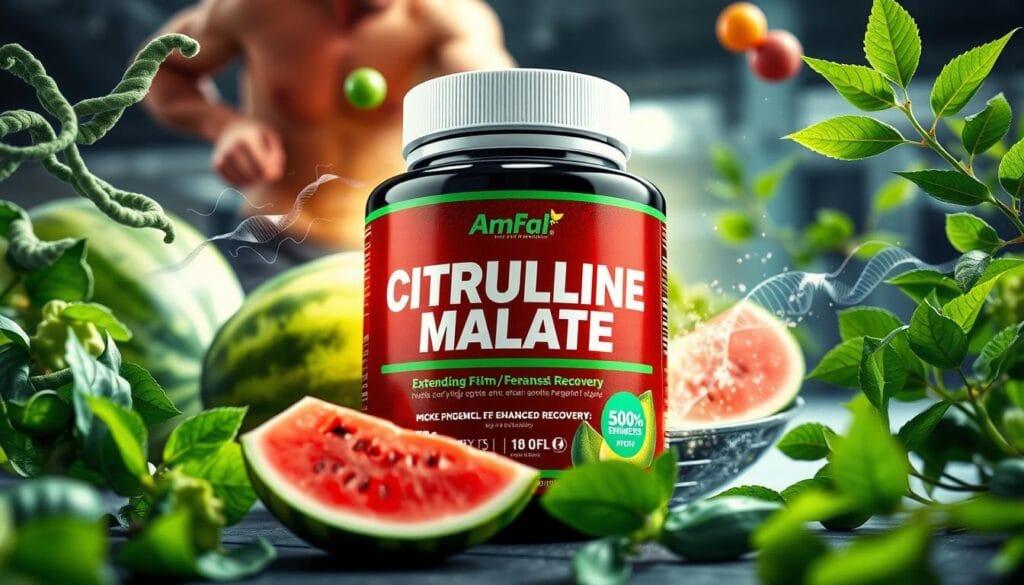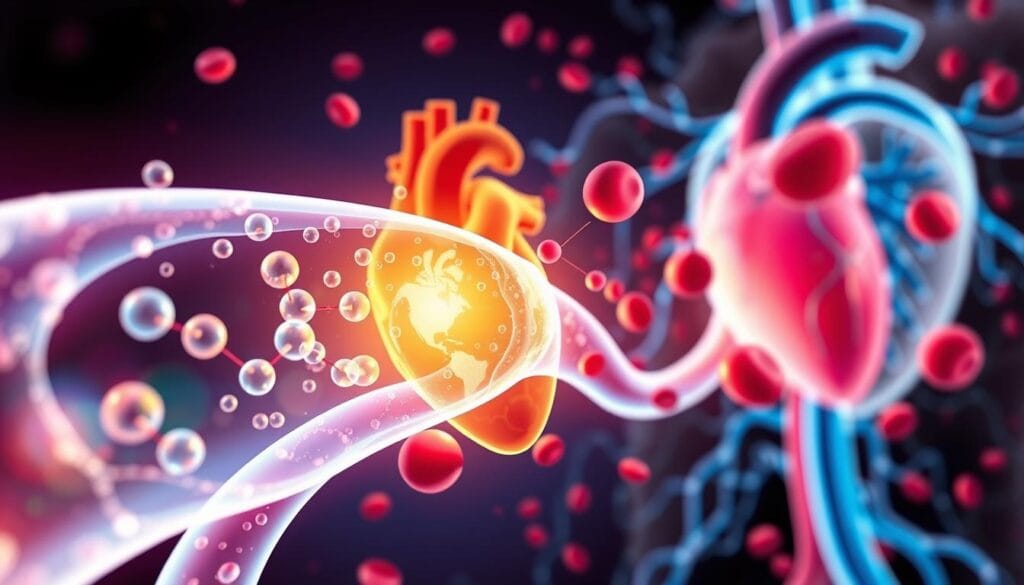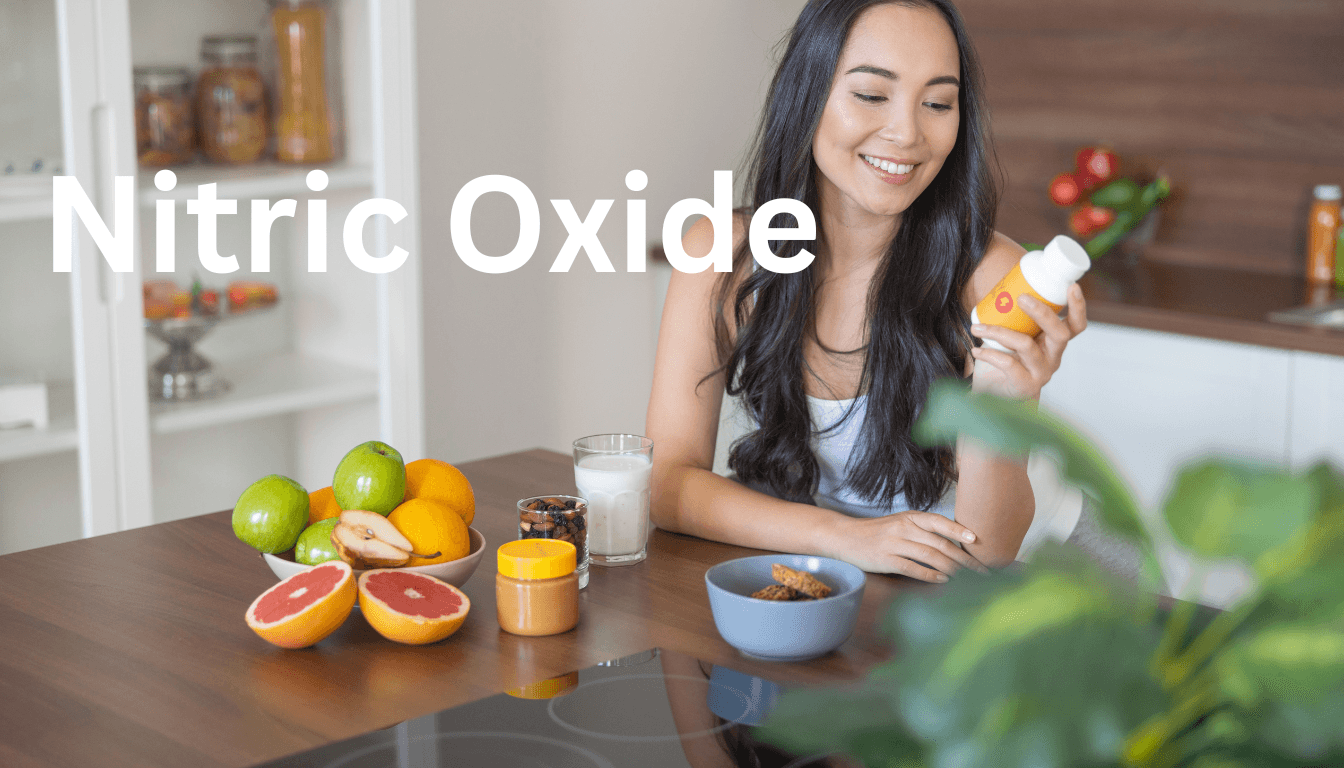Nitric oxide is essential for keeping you healthy and active, especially as you age. It offers numerous benefits, including improved circulation, enhanced exercise performance and is particularly effective in supporting cardiovascular health, reducing blood pressure, and improving overall vitality. Learn tips to naturally boost your wellness with this miracle molecule. The link between nitric oxide and maintaining a healthy blood vessels is just one of the known health benefits of nitric oxide. We honestly cannot live without it and here’s why.

What is Nitric Oxide?
Nitric oxide (NO) is a gas. A special gas that is crucial for maintaining healthy blood vessels and making sure that blood flows smoothly. This colorless gas acts like a messenger that tells (or signals) various parts of the body to perform different functions. It interacts with the blood vessels, the nervous, the immune systems and many other tissues and organs in the body.
A special class enzymes called the Nitric Oxide Synthases or NOS enzymes are responsible for making the nitric oxide. Three different enzymes are
The first one (eNOS) helps to manage blood flow and maintaining a stable internal environment in the blood vessels by producing nitric oxide from the cells that line the inside of the blood vessels, known as the endothelial cells.
The second (nNOS) works in the nervous system. Its production of nitric oxide here, protects nerve cells from damage or degeneration caused by injury or disease and helps in communications.
The third (iNOS) is activated in response to inflammation, and produces large amounts of nitric oxide as part of the immune response.
Understanding the health benefits of nitric oxide can empower individuals to take charge of their health effectively.
Nitric Oxide As a Vasodilator:
Nitric oxide’s special power is relaxing blood vessels which makes them larger. This is called as vasodilation. This action improves blood flow throughout the body and your blood pressure. Improved blood flow and larger size blood vessels means more nutrients and oxygen get to the tissues.
Nitric oxide is especially important for heart health. By relaxing blood vessels, it lowers blood pressure and reduces the workload on the heart. It also prevents blood clots by stopping platelets from sticking together and keeps white blood cells from attaching to blood vessel walls, reducing the risk of conditions like heart attacks and strokes.
Better blood flow helps deliver oxygen to muscles during activity and removes waste like lactic acid more quickly, reducing muscle fatigue. Problems with nitric oxide production can contribute to health issues such as high blood pressure, diabetes, and even poor circulation.
The Role of Nitric Oxide in the Body
Nitric oxide’s role extends far beyond the mere relaxation of the blood vessels; it is also involved in numerous bodily functions, including nerve signaling, which helps nerves talk to each other, aiding in memory and learning. Processes like muscle contraction and insulin signaling need nitric oxide. It plays a role in your body’s defense against infections, nerve communication, and even digestion.
It’s important for fighting off infections and controlling inflammation. In the digestive system, nitric oxide helps with how food moves and is digested. In the kidneys, it helps control blood flow and how much water and salt are lost. In your lungs, it helps keep the airways open, making breathing easier. It has anti-inflammatory properties and opens-airway effects, helping with conditions like asthma.
Additionally, research is showing the potential benefits of nitric oxide in various medical fields, such as cardiology and cancer research. Supplementation with compounds that enhance nitric oxide production is a popular strategy among athletes as well as seniors alike for improving performance, due to its blood flow-boosting effects.
Proper nitric oxide levels are important for keeping things in balance. However, as we age, we gradually lose the ability to make this gas. If our levels drop due to age or poor diet, it can lead to problems like heart disease. But, there are ways to keep these levels up. Eating foods rich in nitrates and exercising regularly is a good start. Understanding nitric oxide’s role and how to boost it, can also increase your chances of maintaining excellent health, even as you age.
Nitric Oxide and Skin Care
Nitric oxide, sometimes called the “anti-aging molecule,” is essential for keeping skin youthful and glowing. It’s a powerful signaling molecule that the body produces naturally and is involved in many important processes to keep our cells healthy and working properly. One of its key roles is maintaining the health of skin cells, which helps the skin look smooth and firm.
One of the most significant benefits of nitric oxide is its ability to improve skin conditions and its benefits for skincare. By widening the blood vessels and increasing blood flow to the skin, the skin’s natural healing properties accelerates, making nitric oxide beneficial for repairing damage caused by environmental stressors like UV radiation or pollution.
👉 Click here to get Dr. Bryan’s Nitric Oxide Based Skincare Products 🌿
Nitric oxide’s anti-inflammatory properties are another major advantage. It helps to reduce redness, swelling and irritation, making it effective for individuals with inflammatory skin conditions such as acne, eczema, and rosacea. By calming the skin, nitric oxide can improve overall texture and reduce discomfort associated with these conditions.
Additionally, nitric oxide supports the production of collagen, a protein essential for maintaining the skin’s elasticity and firmness. Boosting collagen levels can help reduce the appearance of fine lines and wrinkles, contributing to a more youthful look. Nitric oxide also has antimicrobial properties, which can help fight off harmful bacteria that cause acne, further enhancing its skincare benefits.
Nitric oxide also helps improve blood flow, which is crucial for delivering nutrients and oxygen to the skin. When blood flow decreases due to lower nitric oxide levels, the skin may appear dull or less vibrant. Taking steps to support the body’s production of nitric oxide can make a big difference in keeping skin looking healthy and youthful. For instance, eating a balanced diet with foods high in nitrates—like leafy greens and beets—or staying physically active can encourage nitric oxide production
Unfortunately, as we get older, our bodies start to produce less nitric oxide. This decline begins as early as our 20s and continues as we age. The reduced production of nitric oxide is one of the main reasons why skin starts to show signs of aging. Without enough of it, the skin becomes less able to repair itself and stay firm, leading to wrinkles, fine lines, and a loss of elasticity over time.
Products that stimulate nitric oxide production or deliver it directly to the skin offer numerous benefits, from enhancing circulation and calming inflammation to boosting collagen production and fighting bacteria, making it an essential ally in maintaining healthy, vibrant skin. These products harness the molecule’s natural benefits to improve hydration, reduce inflammation, and promote skin rejuvenation.
In summary, nitric oxide plays a major role in maintaining youthful skin by supporting cell health and blood flow. However, its natural decline with age highlights the importance of taking care of your skin early and finding ways to boost nitric oxide levels to slow down the visible signs of aging.
Key Takeaways
- Nitric oxide is a vasodilator that relaxes blood vessels, improving blood flow and nutrient delivery.
- Supplements that increase nitric oxide production can enhance physical performance and recovery.
- Nitric oxide is essential for maintaining cardiovascular health and endothelial function.
- Natural ways to boost nitric oxide levels include consuming nitrate-rich foods and regular exercise.
- Optimizing nitric oxide production can lead to improved overall health and physical performance.
- Nitric oxide is a key player in managing type 2 diabetes by increasing insulin sensitivity
- Nitric oxide is helps to regulate digestion and nerve signaling.
- Lack of nitric oxide causes erectile dysfunction (ED)
- Nitric oxide improves skin conditions and enhances skincare
Supplementing with compounds that boost nitric oxide can lead to numerous health benefits of nitric oxide, especially for athletes.
For those looking to enhance their endurance, understanding the health benefits of nitric oxide is essential.
How Nitric Oxide is Produced in the Body
Your body makes nitric oxide through several chemical reactions, often starting with the amino acid L-arginine. Depending on where the nitric oxide is being made, one or another of the nitric oxide synthase (NOS) enzymes will be involved. Another amino acid, L-citrulline also helps by turning into L-arginine. This increases the amount of L-arginine available for NOS to make more nitric oxide.
Foods high in nitrates, like leafy greens and beets, also contribute. When you consume these foods, the nitrates turn into nitrites in your mouth and then change into nitric oxide in your stomach and blood vessels. This process is vital during activities like exercise when muscles need more oxygen.
Intense exercise can cause muscle soreness, but nitric oxide supplements might help relieve this. Citrulline malate, a form of L-citrulline, boosts nitric oxide levels, improving blood circulation and nutrient delivery to muscles. This helps reduce muscle pain and speeds up recovery.
Studies show that what we eat affects nitric oxide production. Taking L-arginine or L-citrulline can boost nitric oxide, even if we have enough arginine. Also, eating cholesterol and omega-3 fatty acids (found in fish oils and flaxseed) can help the arginine-nitric oxide pathway in animals.
| Substrate | Enzyme/Pathway | Product |
|---|---|---|
| L-arginine | Nitric oxide synthase (NOS) | Nitric oxide |
| L-citrulline | Converted to L-arginine | Nitric oxide (indirectly) |
| Nitrate | Nitrate-nitrite-nitric oxide pathway | Nitric oxide |
Nitric Oxide and Erectile Dysfunction
Nitric oxide is key for getting and keeping an erection. It relaxes the penis’s smooth muscles, letting blood flow in. Without enough nitric oxide, men might face erectile dysfunction (ED), which affects 10-20% of men in the U.S.
ED is more common in older men. The Massachusetts Male Aging Study found 52% of men aged 40-70 had some form of impotence. However, younger men can also suffer from erectile dysfunction, especially those with diabetes, high blood pressure, high cholesterol, or depression.
L-Citrulline and Erectile Dysfunction
L-citrulline, an amino acid, helps improve erection hardness in men with mild ED. It boosts nitric oxide production. Men with mild ED who took 1.5 grams of L-citrulline daily for a month saw better erection hardness than those on a placebo.
Other Supplements for Erectile Dysfunction
Other supplements also help men with erectile dysfunction treatment:
Research continues to unveil new health benefits of nitric oxide, solidifying its role in various health domains.
Many health experts advocate for understanding the health benefits of nitric oxide to promote better health outcomes.
- French maritime pine bark extract: Rich in antioxidants, it enhances L-arginine’s effects on nitric oxide production which improves erectile function in men with ED.
- L-arginine: This amino acid boosts nitric oxide production and has been shown to erectile function when combined with French maritime pine bark extract.
While nitric oxide supplements help some men with ED, they might not work for severe cases. In such cases, injections or implants might be needed. Lifestyle changes and treating underlying health issues are also key in treating ED.
Reducing Muscle Soreness with Nitric Oxide
Intense workouts can cause delayed-onset muscle soreness (DOMS). This is common among athletes and fitness fans. Muscle soreness is a natural part of recovery, but it can be painful and slow you down. Luckily, supplements like citrulline malate can help by boosting nitric oxide levels.

Citrulline malate, a form of L-citrulline, can lessen muscle soreness after exercise. It increases nitric oxide, which improves blood flow and nutrient delivery to muscles. This also helps remove waste products that cause muscle fatigue. Better circulation means faster recovery and less pain. Participants in a recent study who took citrulline malate before performing repetitions on a flat barbell bench press reported 40% less muscle soreness at 24 and 48 hours post-exercise compared to those who took a placebo.”
Boosting nitric oxide levels can lead to various health benefits of nitric oxide such as improved circulation and cognitive function.
To get the most out of citrulline malate for muscle soreness, follow these tips:
| Dosage | 6-8 grams per day, split into two doses |
|---|---|
| Timing | 30-60 minutes before exercise and immediately after |
| Exercise Type | Resistance training and high-intensity interval training (HIIT) |
Adding citrulline malate to your supplements can help reduce muscle soreness and speed up recovery. But, always talk to a healthcare professional before starting any new supplement. This ensures it’s safe and right for you.
The Effect of Nitric Oxide on Blood Pressure
Nitric oxide (NO) plays a critical role in regulating blood pressure. As a vasodilator, it relaxes and widens blood vessels. This function promotes better blood flow and reduces the workload on the heart, directly influencing blood pressure levels.
Nitric oxide relaxes the smooth muscles lining blood vessels, causing them to dilate. This widening of the blood vessels helps lower resistance to blood flow, reducing both systolic and diastolic blood pressure.
Endothelial cells, which line blood vessels, rely on nitric oxide to maintain their function. NO helps maintain smooth blood vessel walls and prevents damage that could lead to hypertension.
Effects of Low Nitric Oxide Levels
When nitric oxide production is impaired, blood vessels become more rigid and less capable of expanding. This can result in higher blood pressure levels and an increased risk of cardiovascular complications such as heart attacks, strokes, and atherosclerosis.
Flavonoid-rich foods that may improve nitric oxide levels
Flavonoids in fruits and veggies have antioxidants that may help lower blood pressure. They boost nitric oxide levels and protect it from damage. This makes nitric oxide more available to help blood vessels relax. These include:
- Berries (strawberries, blueberries, blackberries)
- Citrus fruits (oranges, grapefruits, lemons)
- Dark chocolate and cocoa
- Red wine (in moderation)
- Apples
- Nuts (almonds, pecans, walnuts)
👉 Get flavonoids to boost nitric oxide. This improves blood pressure and heart health.
But, some studies show mixed results on flavonoids and blood pressure. More research is needed to understand their full effect.
The potential health benefits of nitric oxide extend to metabolic health, influencing how we manage conditions like diabetes.
| Nutrient | Food Sources | Impact on Nitric Oxide and Blood Pressure |
|---|---|---|
| Nitrates | Beetroot, leafy greens | Increases nitric oxide production, leading to vasodilation and lower blood pressure |
| Flavonoids | Berries, citrus fruits, dark chocolate, red wine, apples, nuts | May increase nitric oxide production and decrease its breakdown, potentially lowering blood pressure |
Enhancing Physical Performance with Nitric Oxide Supplements
Nitric oxide supplements are popular among athletes and fitness fans. They contain nitrate, L-arginine, and L-citrulline to boost nitric oxide in the body. This can improve endurance, power, and athletic performance by enhancing blood flow and oxygen delivery to muscles.
Nitrate Supplements for Athletes
Nitrate supplements have been studied a lot for exercise benefits. They can improve physical performance, especially in non-athletes during long tests. Studies show they help in cycling, running, swimming, and kayaking by boosting blood flow and oxygen to muscles.
L-Arginine and L-Citrulline Supplements
L-arginine and L-citrulline are amino acids that help make nitric oxide. L-arginine is a direct precursor but much is broken down before reaching the blood. L-citrulline is better because it’s converted to L-arginine in the kidneys, avoiding digestion.
Research shows L-citrulline helps with exercise benefits, especially in older adults. It supports muscle protein synthesis and helps in muscle repair by activating muscle satellite cells.
👉 Get L-citrulline: A more effective supplement for increasing nitric oxide levels.
But, L-arginine doesn’t always improve blood flow or muscle performance in healthy people. Studies found it doesn’t affect muscle blood flow or protein synthesis in young men. It also doesn’t improve performance in Wingate anaerobic tests.
| Supplement | Effects on Exercise Performance |
|---|---|
| Nitrate | Improves physical performance, particularly in non-athletes during prolonged open-ended tests |
| L-Citrulline | Supports vascular and muscular benefits of exercise training in older adults; stimulates muscle protein synthesis |
| L-Arginine | Does not consistently enhance blood flow or muscle performance in healthy and physically active individuals |
In conclusion, nitric oxide supplements, especially with nitrate and L-citrulline, can enhance exercise performance. While L-arginine may not be as effective, combining nitrate and L-citrulline can improve endurance, power, and athletic performance by boosting nitric oxide and blood flow to muscles.
Nitric Oxide and Type 2 Diabetes Management
Nitric oxide is key in managing type 2 diabetes. It helps control blood flow, oxygen, and insulin sensitivity. But, people with type 2 diabetes often have less nitric oxide. This can harm blood vessels and increase heart disease risk.
Type 2 diabetics have lower levels of nitric oxide compared to healthy individuals. Nitric oxide (NO) is an important molecule that helps regulate blood flow and is crucial for the cardiovascular system. Insulin, which plays a key role in managing blood sugar levels, usually signals blood vessel cells to produce more nitric oxide by activating an enzyme called NOS. However, in people with diabetes, this signaling effect is weaker.
Nitric oxide (NO), a crucial signaling molecule in the cardiovascular system, has gained attention for its potential role in the management of type 2 diabetes. Evidence from human studies reveals striking impairments in nitric oxide functionality among individuals with this condition.
Specifically, there is a decrease —ranging from 13% to 94%—in the ability of the smooth muscle in blood vessels to relax, a process that occurs mainly due to the action of by nitric oxide. This reduction in complicates blood flow and may worsen common health problems often seen in diabetes, such as hypertension and heart disease.
Good blood flow is essential for the health of our cells and organs. Therefore, understanding these issues is important for improving how we manage diabetes. Finding ways to increase nitric oxide levels or mimic its effects could lead to new treatments for type 2 diabetes.
By improving how well blood vessels function and increasing nitric oxide levels, we might be able to reverse or at least reduce the impact of metabolic diseases that are often seen in diabetics. Additionally, if we can learn more about how type 2 diabetes affects nitric oxide production, we could better address not only blood sugar control but also the heart-related problems that come with diabetes.
The connection between metabolic processes and heart health is clear. As research continues to explore the complexities of nitric oxide signaling, it suggests that nitric oxide supplements might help control blood pressure and improve insulin regulation in people with type 2 diabetes.
Potential Side Effects of Nitric Oxide Supplements
Nitric oxide supplements are usually safe, but some people might face side effects, especially with high doses. L-arginine, a common booster, can lead to stomach issues and diarrhea if taken over 10 grams a day. Normally, we get about 5 grams of L-arginine from our diet.

Beetroot juice, another enhancer, can make urine and stool dark red. This is harmless but might surprise some. Some might also feel bloated or have stomach upset from beetroot juice supplements.
Some groups should be careful or avoid these supplements. These include:
- People with cirrhosis or guanidinoacetate methyltransferase deficiency
- Those with already low blood pressure
- Individuals with kidney disease, herpes, or recent heart attack history
“Doctors have concerns that taking nitric oxide supplements could make conditions worse such as kidney disease, herpes, and after a person has had a heart attack.”
Inhaled nitric oxide, used for newborns with lung issues, can cause blurred vision and dizziness. It might also lead to sweating, weakness, and trouble breathing. Overdose symptoms include bluish skin, dark urine, and rapid heartbeat. Less severe effects like dry throat can also happen.
| Side Effect | Cause | Severity |
|---|---|---|
| Stomach discomfort | High doses of L-arginine (>10g/day) | Mild to moderate |
| Diarrhea | High doses of L-arginine (>10g/day) | Mild to moderate |
| Dark red urine and stool | Beetroot juice supplements | Harmless |
| Blurred vision, dizziness, sweating, weakness | Inhaled nitric oxide (in newborns) | Moderate to severe |
| Bluish skin, dark urine, fever, rapid heartbeat, unusual bleeding | Nitric oxide overdose | Severe |
It’s important to talk to a healthcare professional before starting nitric oxide supplements. They can guide you on safe doses and watch for any bad reactions.
Natural Ways to Boost Nitric Oxide Levels
Supplements can help increase nitric oxide levels. But, there are natural ways to boost it too. By making dietary changes and adopting certain habits, you can help your body make more nitric oxide. This can lead to many health benefits.
Nitrate-Rich Foods
Eating foods high in dietary nitrate is a great way to boost nitric oxide. Leafy greens like spinach, arugula, and kale are full of nitrates. These nitrates turn into nitric oxide in the body. Foods like beets, watermelon, and spinach also help control blood sugar.
Studies show that drinking beetroot juice can improve blood flow and lower blood pressure. Eating a variety of nitrate-rich foods, like those in the Mediterranean diet, can also reduce heart disease risk and help you live longer.
- Spinach
- Beetroot and beetroot juice
- Arugula
- Kale
- Swiss chard
- Celery
Exercise and Nitric Oxide Production
Exercise is another way to increase nitric oxide in your body. When you exercise, your blood flow and blood vessel stress increase. This triggers nitric oxide release.
Nitric oxide helps your blood vessels open up. This improves blood flow and brings oxygen and nutrients to your muscles. Both cardio and strength training can boost nitric oxide levels. This can improve your endurance, reduce inflammation, and speed up muscle recovery.
👉 Try to exercise regularly, like walking fast, jogging, cycling, or lifting weights, to get the most nitric oxide benefits.
END




